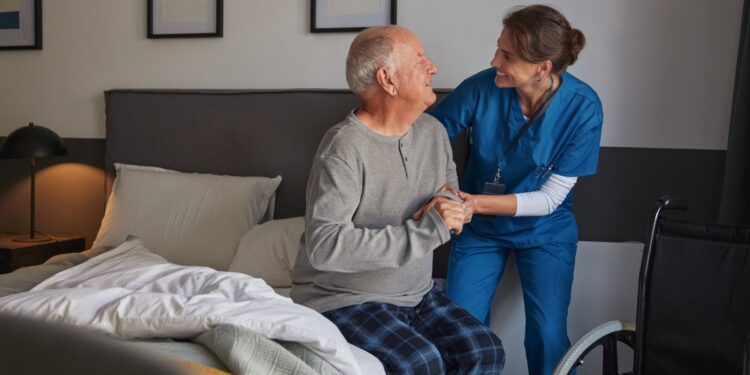Managing incontinence calls for patience and reliable strategies. Keeping a bed clean and dry is a routine concern for family caregivers and healthcare providers. This caregiver’s guide to keeping the bed dry provides helpful details for supporting comfort and hygiene every night.
Bedding Foundations
A waterproof mattress protector makes cleanup much easier and helps prolong the life of the mattress. Pair it with washable sheets. Think cotton or blended fabrics that work well for repeated laundering.
Top the bedding with a waterproof, absorbent underpad for an extra moisture barrier. Keeping a backup set of sheets and underpads close by means you can quickly change the bed when needed.
Nighttime Routines
A predictable bedtime routine helps reduce unwanted surprises. Don’t neglect hydration needs, but shift most fluid intake earlier in the day.
Encourage a last bathroom visit right before bed. Make sure the path to the bathroom is safe and uncluttered; soft night lights can be helpful. For those with limited mobility, a bedside commode or urinal may be useful.
Product Choices
Choosing the right products reduces bedding changes, simplifies cleanup, and helps maintain dignity. Body-worn options, like briefs or pull-on underwear, come in many absorbency levels and sizes.
You can prevent leaks and odors with adult diapers, which also help with overnight comfort. Consider trying different products to find what feels best and works well for the individual.
Laundry and Odor Control
Wash soiled bedding and clothing promptly to avoid set-in stains and lingering odors. Use a pre-soak solution or a detergent with enzymes; these help break down tough stains and neutralize smells. Follow product instructions for cleaning to maintain usefulness.
Skin Care and Comfort
Keeping skin dry is important for comfort and to help avoid irritation. Provide gentle sponge baths with mild, fragrance-free cleansers after any wetness. Moisture barrier creams offer additional protection.
Select soft, breathable bedding and clothing for airflow and comfort. Regular skin checks make it easier to notice and address small issues sooner.
Safety and Dignity
A calm, respectful approach goes a long way in supporting dignity. Respect privacy and include the person in care decisions when possible. Clear, honest communication helps build trust and reduces anxiety.
Creating a simple and manageable routine with our caregiver’s guide to keeping the bed dry can benefit both the caregiver and the loved one or patient. With your dedication and support, you can create a comfortable and supportive environment.
















